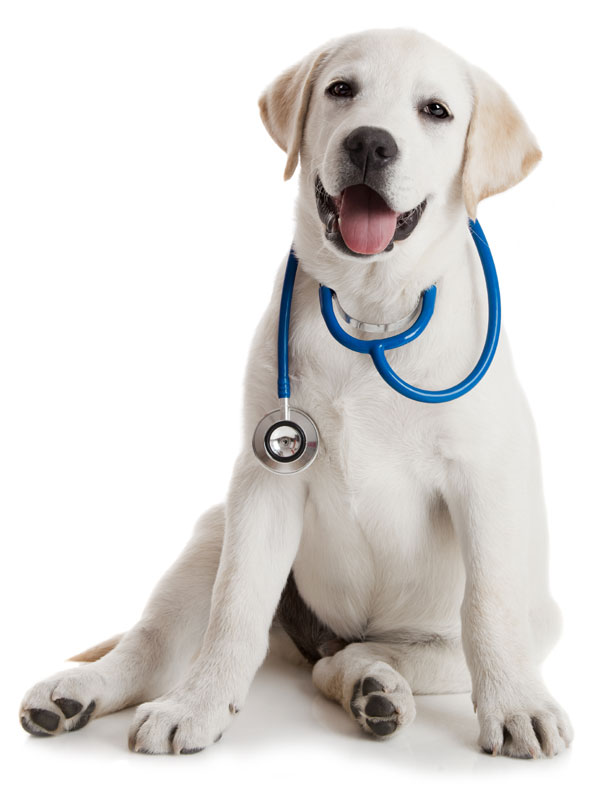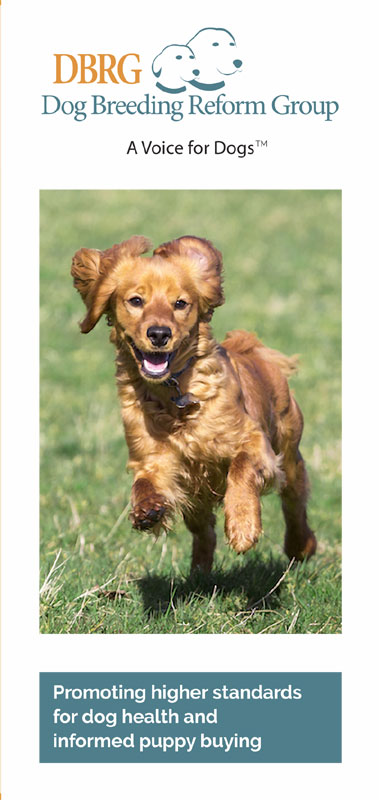About the Dog Breeding Reform Group
What are the Problems with Dog Breeding in the UK?
|
Dog breeding in the UK has been poorly regulated. Many breeders pay little regard to the welfare needs of dogs used for breeding or their puppies. Dogs are often bred without prior testing for genetic diseases which may be passed on to their puppies. Unsound dogs may be bred with exaggerated physical features which compromise their health, welfare and dignity. Puppies are marketed and sold irresponsibly on-line.
Buying a puppy is often done with insufficient research, with buyers sometimes failing to follow the basic rule of seeing the puppy with its mother and siblings. Buyers may choose a type of dog because of their perceived ‘cuteness’ unaware that some physical features are harmful to a dog and can cause long term suffering. Buyers sometimes choose a breed which is unsuited to their location, home environment and lifestyle and some dog owners are unaware of the lifetime financial costs of caring for a dog, especially the cost of veterinary treatment. In particular, flat-faced breeds such as Pugs, French Bulldogs and English Bulldogs have become popular. These dogs can suffer from serious health and welfare problems due to their body shape ('conformation'). Many dog owners are unaware of the Code of Practice for the Welfare of Dogs. |
|
|
Our Objectives
|
We campaign for the enactment of legislation to properly protect dogs, and to raise public awareness of the health and welfare problems associated with dog breeding. We would like to see an end to the practice of ‘puppy farming’, and the inclusion of animal welfare education within the school curriculum. The DBRG promotes the widespread use of the Code of Practice for Dog Breeding and the AWF Puppy Contract. Appropriate health screening should be required before dogs are selected for breeding, and only dogs which are free from serious genetic diseases should be used.
Care must also be taken to maintain genetic diversity. Breeders who breed even one or two litters per year should be registered with the local authority. All advertisements for the sale of puppies must be accompanied by the registration number, and for licensed breeders all advertisements for the sale of puppies must be accompanied by a licence number. We are looking to further statutory regulations to effectively protect progeny from inherited diseases and harmful physical traits. We suggest there is appropriate training for local authority inspectors in breed-related inherited health problems and a reduction in permitted number of litters per breeding bitch for licensed breeders to four litters. |
Our Strategic Plan 2022 - 2024
|
How We Aim to Achieve Our Objectives
|
|
|
How You Can Help
|
When choosing a new puppy, demand the highest welfare standards from breeders. Research your puppy and breeder thoroughly. Buy a puppy only from their breeder, never from a third party. Use the AWF Puppy Contract.
Only buy a puppy if you can see him/her with the mother, siblings and if possible the father. This will help to ensure that the puppies have been bred on site and that the adult breeding dogs are treated well. It will also indicate the parents’ temperament and health. Always check which health tests are appropriate for a breed (or cross breed) before visiting the breeder. Ask to see the health test certificates. See Canine Health Schemes and IPFD Harmonisation of Genetic Tests. Never purchase a puppy to rescue him/her from bad conditions. Sadly, this only encourages bad breeders to continue breeding. Report the breeder to the appropriate local licensing authority if standards of welfare are poor. Never buy a puppy from someone who suggests delivery or meeting you halfway. This is often a cover for poor welfare at the breeding premises. In the case of a Kennel Club registered puppy, inform the breeder, breed club and Kennel Club if your dog develops a breed-related genetic disease. |
|
|
More Information About Breed Health
|
VetCompass Infographics – Disease prevalence data for UK pet dogs:
www.rvc.ac.uk/vetcompass/learn-zone/infographics/canine Universities Federation for Animal Welfare (UFAW) information on breed health: www.ufaw.org. Cambridge Vet School Inherited Diseases in Dogs (IDID): www.vet.cam.ac.uk/idid |
United Kingdom Animal Welfare Legislation
|
The Animal Welfare Act 2006 lists an animal’s needs. All owners must ensure that the following needs of their dog are met:
Appropriately authorised officers can enforce the Animal Welfare legislation.
|
|
|
Download Our PDF Leaflet
|
|










